Search
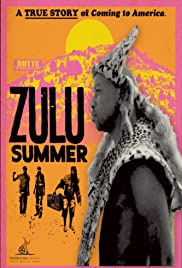
“The Zulus are coming,” Dark Sevier, a local DJ for public radio in Butte, Montana, announces to listeners one evening in May, 2017. By this point, everyone in the small town had been eagerly following the strange and curious series of events that would eventually bring a Zulu prince from Nongoma, South Africa, to their town of 30,000-some-odd people.
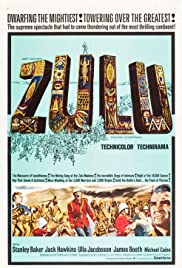
In 1879, during the Zulu wars, man of the people Lt. John Chard (Stanley Baker) and snooty Lt Gonville Bromhead (Michael Caine) were in charge of defending the isolated Natal outpost of Rorke’s Drift from tribal hordes, holding out during an Alamo-like siege until they are overwhelmed, losing the battle, but going down in history as heroes. 150 soldiers defended a supply station against some 4000 Zulus, aided by the Martini-Henry rifle “with some guts behind it”. In the hundred years since the Victoria Cross was created for valour and extreme courage beyond that normally expected of the British soldier in face of the enemy only 1344 have been awarded. Eleven of these were won by the defenders of the mission station at Rorke’s Drift, Natal, January 22nd to the 23rd 1879.
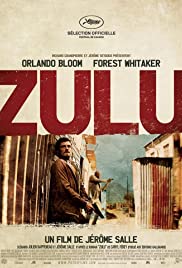
As a child, Ali Neuman narrowly escaped being murdered by Inkhata, a militant political party at war with Nelson Mandela’s African National Congress. Only he and his mother survived the carnage of those years. But as with many survivors, the psychological scars remain.
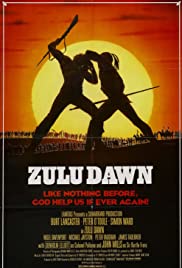
In 1879, the British suffer a great loss at the Battle of Isandlwana due to incompetent leadership. Cy Endfield co-wrote the epic prequel Zulu Dawn 15 years after his enormously popular Zulu. Set in 1879, this film depicts the catastrophic Battle of Isandhlwana, which remains the worst defeat of the British army by natives, with the British contingent outnumbered 16-to-1 by the Zulu tribesmen. The film’s opinion of events is made immediately clear in its title sequence: ebullient African village life presided over by King Cetshwayo is contrasted with aristocratic artifice under the arrogant eye of General Lord Chelmsford (Peter O’Toole). Chelmsford is at the heart of all that goes wrong, initiating the catastrophic battle with an ultimatum made seemingly for the sake of giving his troops something to do. His detached manner leads to one mistake after another.
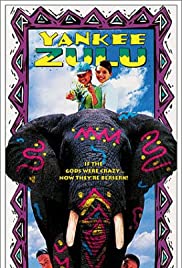
Two South African boys, one white, Rhino, and one black, Zulu, go their separate ways after an incident. Many years later, they meet up again as adults, when one, after living for years in the United States, is now a wanted criminal. The two end up being a part of a madcap chase involving a check for a large amount of lottery money, pursued by Gen. Diehard and Rhino’s ex-wife Rowena, who was the cause of the rift between the two protagonists.

In the most brutal migration on the planet, ride shotgun with ZuluEchoFive and FoxtrotOne, a zebra mother and her son. They run the gauntlet through crocodile infested rivers and lion offensives, culminating in the world’s ultimate ambush: the Mara River – where the biggest crocodiles in Africa are on the attack.

Middle-aged businessman Jacob Zulu has become accustomed to his routine, a life which includes his wife Michelle, his daughter Natasha, his work and his fun. As a powerful CEO, with a big house, a successful spouse, a family and expensive recreational habits, Jacob feels like life will always be this easy.
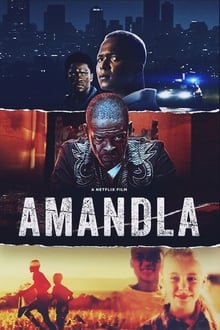
Amandla is an anti-apartheid resistance slogan and means power. Apartheid in South Africa is still in full force when, in 1987, the two brothers Impi and Nkosana grew up on a farm as the sons of servants. The white owners are liberal people who aren’t too particular about racial segregation. Black Africans have it relatively good there. Even a tender love bond develops between Impi and the blond daughter Elizabeth. But they have to be on their guard when neighboring farmers come to visit. When three racist upstart Boers arrive on the farm one day, tragic incidents occur with terrible consequences. The two Zulu boys are now on their own. Several years after surviving this childhood tragedy, the now grown brothers each find themselves on the opposing sides of the law. One is a gangster, the other is a police officer. A heinous gang crime tests their loyalty to one another.
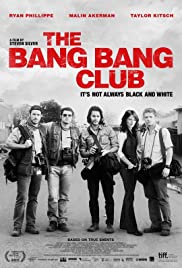
In the early to mid ’90s, when the South African system of apartheid was in its death throes, four photographers – Greg Marinovich, Kevin Carter, Ken Oosterbroek and João Silva – bonded by their friendship and a sense of purpose, worked together to chronicle the violence and upheaval leading up to the 1994 election of Nelson Mandela as president. Their work is risky and dangerous, potentially fatally so, as they thrust themselves into the middle of chaotic clashes between forces backed by the government (including Inkatha Zulu warriors) and those in support of Mandela’s African National Congress.
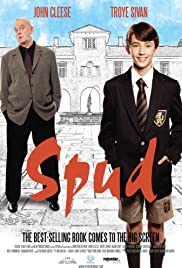
It’s South Africa 1990. Two major events are about to happen: The release of Nelson Mandela and, more importantly, it’s Spud Milton’s first year at an elite boys only private boarding school. John Milton is a boy from an ordinary background who wins a scholarship to a private school in Kwazulu-Natal, South Africa. Surrounded by boys with nicknames like Gecko, Rambo, Rain Man and Mad Dog, Spud has his hands full trying to adapt to his new home. Along the way Spud takes his first tentative steps along the path to manhood. (The path it seems could be a rather long road). Spud is an only child. He is cursed with parents from well beyond the lunatic fringe and a senile granny. His dad is a fervent anti-communist who is paranoid that the family domestic worker is running a shebeen from her room at the back of the family home. His mom is a free spirit and a teenager’s worst nightmare, whether it’s shopping for Spud’s underwear in the local supermarket
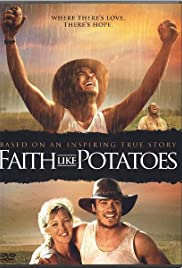
Frank Rautenbach leads a strong cast as Angus Buchan, a Zambian farmer of Scottish heritage, who leaves his farm in the midst of political unrest and racially charged land reclaims and travels south with his family to start a better life in KwaZulu Natal,South Africa.
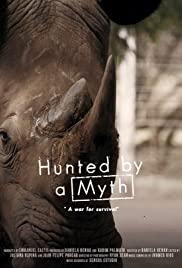
The story follows an anti-poaching ranger in Zululand Reserve in his fight to save rhino’s at the peak of the poaching season. As he is alerted of another mother rhino massacred for her horn, he now turns his full focus to finding a rhino cub that will die if not saved in the next 24hrs. This documentary highlights not only the importance of stopping the massacres of rhino poaching but the hope of saving the young and the species in the future by coming together and mixing all efforts that allow the rhinos to stay alive.
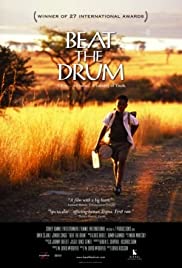
Young Musa is orphaned after a mysterious illness strikes his village in KwaZulu Natal. To help his grandmother, Musa sets out for Johannesburg with his father’s last gift, a tribal drum, in search of work and his uncle. The journey confronts him with the stark realities of urban life, but his indomitable spirit never wavers; he returns with a truth and understanding his elders have failed to grasp.
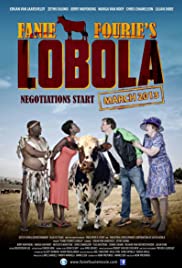
After Fanie takes Dinky, a strong Zulu woman, to his Afrikaans family wedding, the two find an unexpectedly fun cross-cultural romance. But in order to marry Dinky, Fanie must negotiate to pay Lobola (a South African dowry).